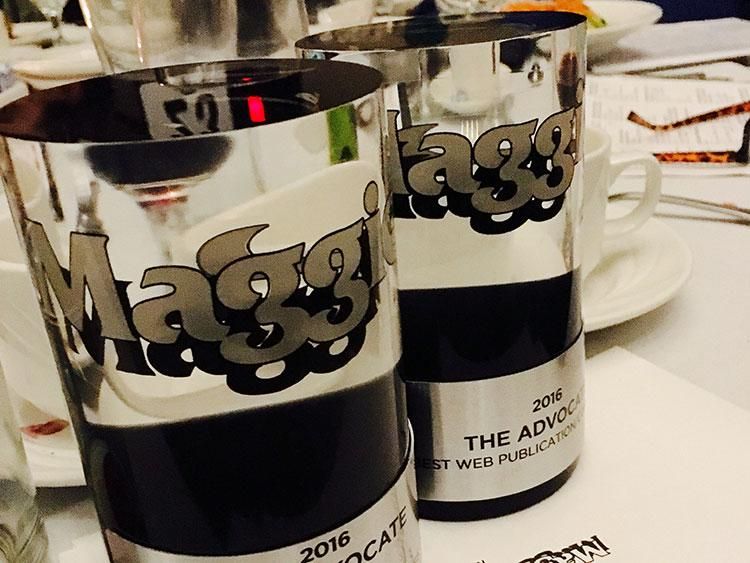Donald Trump Made the Unwise Decision to Call Elizabeth Warren ‘Goofy’ on Twitter

On Tuesday night, shortly after Donald Trump became the presumptive Republican nominee for President, Elizabeth Warren unleashed on Trump in a barrage of truth-telling. It took him three days to respond, but the results were glorious once again.
Read the Elizabeth Warren Donald Trump tweetstorm:
.@realDonaldTrump is now the leader of the @GOP. It’s real – he is one step away from the White House.
— Elizabeth Warren (@elizabethforma) May 4, 2016
Here’s what else is real: @realDonaldTrump has built his campaign on racism, sexism, and xenophobia.
— Elizabeth Warren (@elizabethforma) May 4, 2016
There’s more enthusiasm for @realDonaldTrump among leaders of the KKK than leaders of the political party he now controls.
— Elizabeth Warren (@elizabethforma) May 4, 2016
.@realDonaldTrump incites supporters to violence, praises Putin, and is “cool with being called an authoritarian.”
— Elizabeth Warren (@elizabethforma) May 4, 2016
.@realDonaldTrump attacks vets like @SenJohnMcCain who were captured & puts our servicemembers at risk by cheerleading illegal torture.
— Elizabeth Warren (@elizabethforma) May 4, 2016
And @realDonaldTrump puts out out contradictory & nonsensical national security ideas one expert called “incoherent” & “truly bizarre.”
— Elizabeth Warren (@elizabethforma) May 4, 2016
It will determine whether we move forward as one nation or splinter at the hands of one man’s narcissism and divisiveness.
— Elizabeth Warren (@elizabethforma) May 4, 2016
I’m going to fight my heart out to make sure @realDonaldTrump’s toxic stew of hatred & insecurity never reaches the White House.
— Elizabeth Warren (@elizabethforma) May 4, 2016
Trump waited until last night to respond, but Warren was ready.
Let’s properly check goofy Elizabeth Warren’s records to see if she is Native American. I say she’s a fraud!
— Donald J. Trump (@realDonaldTrump) May 6, 2016
Goofy Elizabeth Warren, Hillary Clinton’s flunky, has a career that is totally based on a lie. She is not Native American.
— Donald J. Trump (@realDonaldTrump) May 6, 2016
I called out @realDonaldTrump on Tuesday. 45 million saw it. He’s so confident about his “counter punch” he waited until Friday night. Lame.
— Elizabeth Warren (@elizabethforma) May 7, 2016
“Goofy,” @realDonaldTrump? For a guy with “the best words” that’s a pretty lame nickname. Weak!
— Elizabeth Warren (@elizabethforma) May 7, 2016
We saw what happened when birthers like @realDonaldTrump attacked @BarackObama. They lost big. American voters knew better.
— Elizabeth Warren (@elizabethforma) May 7, 2016
We saw when Scott Brown attacked my family & his staff made tomahawk chops & war whoops. They lost big. MA voters knew better.
— Elizabeth Warren (@elizabethforma) May 7, 2016
.@realdonaldtrump is a bully who has a single play in his playbook — offensive lies thrown at anyone who calls him out.
— Elizabeth Warren (@elizabethforma) May 7, 2016
.@realDonaldTrump spews insults and lies because he can’t have an honest conversation about his dangerous vision for America.
— Elizabeth Warren (@elizabethforma) May 7, 2016
But here’s the thing. You can beat a bully — not by tucking tail and running, but by holding your ground.
— Elizabeth Warren (@elizabethforma) May 7, 2016
If you think recycling Scott Brown’s hate-filled attacks on my family is going to shut me up, @realDonaldTrump, think again buddy. Weak.
— Elizabeth Warren (@elizabethforma) May 7, 2016
The @GOP‘s hate-filled lies didn’t scare me before, @realDonaldTrump. And they don’t scare me now.
— Elizabeth Warren (@elizabethforma) May 7, 2016
.@realDonaldTrump lied his way through the primaries without being held accountable. That’s over.
— Elizabeth Warren (@elizabethforma) May 7, 2016
Whatever @realDonaldTrump says, we won’t shut up. We won’t back down. This election is too important, & he won’t step foot in White House.
— Elizabeth Warren (@elizabethforma) May 7, 2016
Goofy Elizabeth Warren and her phony Native American heritage are on a Twitter rant. She is too easy! I’m driving her nuts.
— Donald J. Trump (@realDonaldTrump) May 7, 2016
Goofy Elizabeth Warren is weak and ineffective. Does nothing. All talk, no action — maybe her Native American name?
— Donald J. Trump (@realDonaldTrump) May 7, 2016
No, @realDonaldTrump – your racism, sexism & xenophobia doesn’t drive me nuts. It makes me sick. And I’m not alone.
— Elizabeth Warren (@elizabethforma) May 7, 2016
The post Donald Trump Made the Unwise Decision to Call Elizabeth Warren ‘Goofy’ on Twitter appeared first on Towleroad.

feeds.towleroad.com/~r/towleroad/feed/~3/1iox3HUQkcQ/













